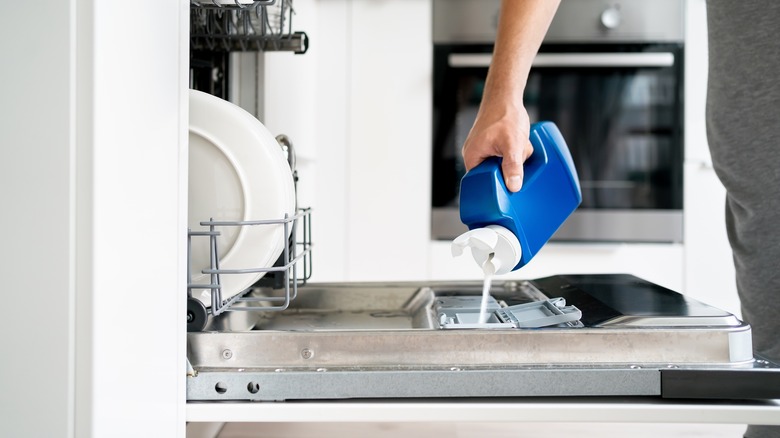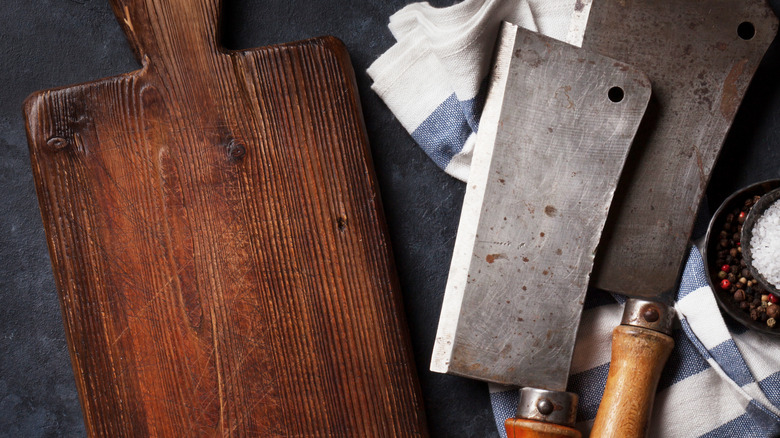How To Eliminate Rust Inside Your Dishwasher & Keep It Sparkling Clean
We may receive a commission on purchases made from links.
You know the importance of properly cleaning your dishwasher. Grime and bacteria can build up in this appliance, leading to unwanted odors. Another potentially dangerous threat to its longevity occurs when rust forms on its interior, which can shorten its lifespan by clogging some of the unit's components.
When you clean the dishwasher's interior regularly, you can help prevent rust formation. One of the easiest ways to clean your dishwasher to remove rust is by using citric acid, also called sour salt. You can use citric acid to clean a lot of items in your home, including in the kitchen and bathroom. Citric acid is safe to use on plastic or metal, which are common materials to find inside a dishwasher.
Why does citric acid work to remove rust? It consists of a mild acid, while rust consists of iron oxide, which is an alkaline. When you nix the alkaline with the acid, it creates a neutralization reaction that allows you to remove the rust.
Steps to use citric acid to remove rust in a dishwasher
To deploy this cleaning method, you first need to find some citric acid. Most grocery stores, drug stores, or hardware stores will carry this substance, usually with the canning supplies. Otherwise, you can order a 1-pound container of citric acid fine-grain crystals for about $10 on Amazon. To use the crystals in the dishwasher, place 3 to 4 ounces of the product into the detergent container and close the compartment.
Then, just run the appliance through a normal washing cycle. You can have dishes inside the machine when you perform this step unless they have silver or gold trim or a raised pattern imprinted on the material. Repeat this process until you remove all the rust from the machine's interior. Run one final cycle with normal dishwasher soap in the dispenser.
If you have a stainless steel interior to the dishwasher, you may want to consider using citric acid liquid instead of crystals. There's a small chance the crystals could damage the steel. Add about four ounces of liquid to the detergent container and run the cycle. Repeat the process as necessary before running a final cycle with normal dishwasher soap. You can purchase 1 quart of liquid citric acid at Amazon for about $30.
How to prevent rust from forming inside your dishwasher and on your metal utensils in the first place
Since the interior of your dishwasher is an extremely moist environment and you may have hard water inside your home, rust is a potential outcome. When the minerals inside hard water come into contact with wet metal, it can form rust over time. Dishwashers have a protective interior coating designed to protect against minerals inside hard water. However, this coating eventually wears away, so if you have hard water, rust formation is possible. Rust stains can appear on any steel inside the appliance, including heating elements, interior panels, silverware, knives, or dish racks.
One of the best ways to avoid this problem is to open the door to the dishwasher slightly after running a cycle and allow the damp air inside the machine to circulate into the kitchen. If your dishwasher struggles to run the drying cycle, leaving quite a bit of moisture inside, immediately dry the cutlery and any metal dishware by hand when the cycle ends.
Never use salt inside your dishwasher. Mixing salt, water, and steel will hasten the formation of any rust. Rinse any excess salt from your dishes before placing them inside the appliance. If you have hard water, installing a water softener system can help prevent the formation of rust in the dishwasher and in your other appliances by neutralizing hard water minerals.


